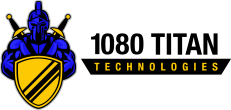With remote access being so popular right now, it is important that there is an awareness of how to maintain your business’ security while utilizing it. There are a lot of steps involved in doing so. Let’s go over some of the most important considerations that you need to weigh while your office continues to work remotely.
Accept the Threat
This is perhaps the most important thing to keep in mind, and to make sure your team remains cognizant of. Regardless of how secure your in-house technology may be (and it never hurts to double-check that, either), this security probably isn’t matched by that which exists in your team members’ home networks. On top of that, there are threats out there that actively target the applications and tools utilized for remote productivity. As your employees are working from home, they don’t become less of a viable target—quite the opposite—so you need to make sure they all are even more conscious of security best practices.
Identify and Manage Sensitive Information
It’s going to be especially important that your company’s information remains secure, with some data being particularly important to protect as remote operations commence. On top of role-based access and other authentication measures that should already be in place, you need to set up controls that limit what an employee can do with the information they are accessing. For instance, some data should not be able to be downloaded to a team member’s device. That way, you can better ensure that data not only stays with those who need it, but it also stays where it will be of the most use.
Use a VPN
A VPN, or Virtual Private Network, is an essential tool for remote work. While it doesn’t protect your company against all varieties of data theft, it allows your remote team to safely access the data stored on your internal network while encrypting it against spying eyes. With a VPN in place, you can be more confident that the data you send isn’t being viewed by someone who shouldn’t see it.
Require User Authentication
Finally, one of the most effective ways of keeping unauthorized people out of your data storage is to put strict access controls in place, including multi-factor authentication requirements. A good principle to follow is the one of least privilege… basically, a more professional way of phrasing a “need-to-know” basis.
While remote operations may add a bit of complexity into your IT preparations and management in the short-term, they can prove to have long term benefits. Reach out to 1080 Titan Technologies for assistance in implementing effective and secure remote work and access policies and solutions! Call (404) 800-7946 for more information.



